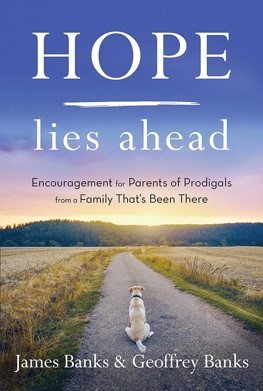
It started with one of our neighbourhood boys saying to my kids, “Ukraine is in trouble.”
Before my seven-year-old daughter Lucy heard this, bombs and cannons were toys you played with.
Now, it involved real people. For her, this led to lots of questions, and for my wife and I, lots of decisions on how to explain a very difficult topic.
Hope Lies Ahead: Encouragement for Parents of Prodigals from a Family That’s Been There
Get our latest family resource!
Our latest resource, Hope Lies Ahead: Encouragement for Parents of Prodigals from a Family That’s Been There is now available.Get a copy
Every month, we roll out a new resource for families. Subscribe to our email updates, and be the first to get a copy!
As we are trying to stomach the information ourselves, our young children are trying to process things they don’t understand and our older children are trying to grapple with horrors they (unfortunately) can.
Getting ahead on this topic with our children is the best-case scenario, but even if we haven’t, how can we talk to them about war in a way that will be helpful? More importantly, how can we help our children understand how the God of peace is involved and working in the midst of this?
Our young children are trying to process things they don’t understand and our older children are trying to grapple with horrors they (unfortunately) can.
Here are some brief and practical steps to consider:
1. Pray
These are not easy conversations to have with our children. Ask God to work through you, and in your children, as you begin a discussion.
2. Let them ask questions
We won’t always know what our kids think until they ask us what they don’t know. We may not always have the answers, but giving them the space to raise these questions reminds them that you’re a safe person to talk to.
3. Ask them questions
This is a great gospel opportunity to talk to your kids about this moment they are living in. Simple questions like, “What do you think about . . .” or, “How does that make you feel?”, can give you great insights into what they are thinking, and can help guide your prayers for them and with them.
This is a great gospel opportunity to talk to your kids about this moment they are living in.
4. Look at the map together
Many of us don’t know where Ukraine is. It’s a good opportunity to give our kids a visual lesson and to pray for the surrounding area. (Do you know where Moldova is? I didn’t!)
5. Share information with discernment
Many gruesome details and images of the ongoing conflict are available, especially online. Kids don’t need to know (or see) everything to understand the gravity of war. Consider how you can provide them with helpful, age-appropriate information without over-sharing.
Use what you’re hearing and seeing to pray to the Lord for His peace, power, protection, and provision for those who are affected.
6. Keep your prayers updated
There is a lot of news out there, and it can be hard to make sense of it all. In the age of social media, we can even see the world through the eyes of everyday people sharing their experience. While we may not be able to grasp the full picture of what’s happening on the ground, we can be certain of one thing: we have a God who knows it all. Use what you’re hearing and seeing to pray to the Lord for His peace, power, protection, and provision for those who are affected.
7. Consider getting involved
Your church may be offering some ways to give financially or partnering organisations that can help with relief on the ground. This could be an opportunity to model generosity or encourage your children to give sacrificially.
8. Point to God’s Word for truth
- Wars begin because of injustice in our hearts (James 4:1–2).
- God desires for all people to seek peace (Psalm 34:11–14).
- Jesus came to earth for peace and has overcome the world (John 16:33).
- We can call upon God’s protection for His people (Isaiah 41:10).
- We can trust God with our fears (1 Peter 5:7).
- We can trust God’s plan (Romans 8:28).
- Consider how we can love and pray for our enemies (Luke 6:27–28).
9. Use the gospel as your guide
Jesus came with a promise to end all wars forever. Unpacking Jesus’ death can help our children see these atrocities with a gospel-centred lens and find hope. Here are some prompts:
- Jesus brings justice (1 John 2:2).
- Jesus offers peace (Ephesians 2:4–5).
- Jesus gives us the road to hope (Romans 8:24–25).
10. Pray some more
This may not be the first or the last conversation you’ll have with your children about this topic. Inviting them to pray with you will reinforce the fact that they have a safe space to talk and ask their questions.
In our heartbreak over the constant stream of news, the moments we’re having with our children are already bearing fruit. When I asked my daughter how we could pray for people in the Ukraine, her response was: “We need to pray for more pray-ers”.
Inviting them to pray with you will reinforce the fact that they have a safe space to talk and ask their questions.
I’m convinced even more that families can, and will, have a real impact when we enter into these conversations together.
Why don’t we pray right now?
Praise be to the God and Father of our Lord Jesus Christ, the Father of compassion and the God of all comfort, who comforts us in all our troubles, so that we can comfort those in any trouble with the comfort we ourselves receive from God (2 Corinthians 1:3–4).
Amen.
This article was originally published on The Gospel Coalition Australia.
Adapted with permission.




